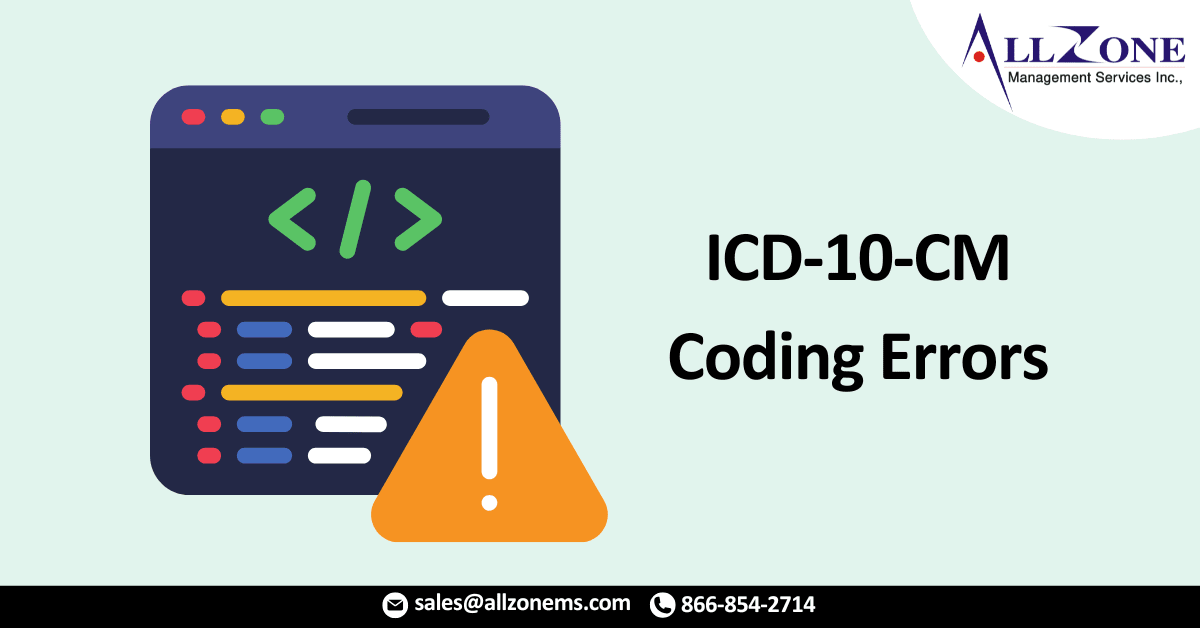Medical ICD-10-CM coding accuracy is crucial for efficient healthcare reimbursement. Even minor errors can lead to claim denials, delays, and lost revenue. Here are the top 10 medical coding mistakes to avoid:
Accuracy is Key:
1. Don’t Skip the Details: ICD-10-CM codes often require specific details in the fourth and fifth digits. Using truncated codes (missing these details) is a common error that guarantees claim denial.
2. Specificity Matters: Avoid generic codes like “other and unspecified” unless absolutely necessary. Precise coding ensures proper reimbursement for the service provided.
3. Outdated Codes Don’t Pay: Regularly update your ICD-10-CM code sets and guidelines to reflect the latest coding requirements. Using outdated codes leads to automatic denials.
4. Denials Mean Lost Revenue: Improper coding, including incorrect selection, sequencing errors, and truncated codes, are the top reasons for claim denials. Accurate coding translates to faster claim processing and higher revenue.
ICD-10-CM Coding Practices:
5. Read beyond the Index: The ICD-10-CM codingindex is a starting point, not the final answer. Always refer to the codebook’s tabular list and notes to ensure you’ve selected the most accurate code.
6. Sequencing is Crucial: Code the underlying condition first, followed by any manifestations. For injuries, code the injury before any external cause (E-code).
7. Code for Today’s Treatment: Only include diagnoses relevant to the current encounter on the claim. Chronic conditions not addressed during the visit shouldn’t be coded, but documented for future reference (e.g., annual wellness visits).
8. Don’t Over-code or Under-code: Include all relevant diagnoses but avoid unnecessary codes that inflate the severity of the visit. Conversely, under-coding shortchanges the practice for delivered services.
Documentation and Communication:
9. Symptom Codes are Valid: Don’t code “rule-out diagnoses” based on suspicion alone. Use appropriate symptom codes to justify testing without compromising patient history.
10. Stay Up-to-Date: Regularly review coding guidelines like the ICD-10-CM coding Official Guidelines for Coding and Reporting to ensure you’re following the latest coding practices.
By following these tips, medical coders can improve coding accuracy, reduce claim denials, and ensure smooth financial operations for their healthcare practice.
Here are some of the things to consider when choosing a medical coding company:
Medical coding companies play an important role in healthcare practices by translating patient medical records into universal medical codes. These codes are then used by insurance companies to process claims and determine reimbursement.
There are many medical coding companies that partner with healthcare practices. Here are some of the benefits of using a medical coding company:
-
- Improved accuracy: Medical coding companies employ certified coders who are up-to-date on the latest coding guidelines. This can help to improve the accuracy of your claims and reduce the number of denials.
- Increased efficiency: Medical coding can be a time-consuming process. By outsourcing your coding to a medical coding company, you can free up your staff to focus on other important tasks.
- Reduced costs: Medical coding companies can help you to reduce your coding costs by providing you with access to a pool of experienced coders.
- Experience: Make sure the company has experience working with practices similar to yours.
- Services offered: Our medical coding Company should offer a variety of services, such as coding, auditing, and education.
- Cost: Get quotes from several companies before making a decision.
- Security: Our medical coding company should have strong security measures in place to protect your patients’ privacy.

